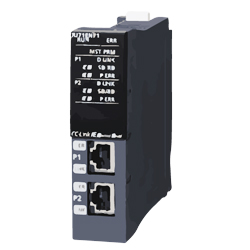(!) Since support from Microsoft will end on January 14 2020, Windows 7 user might not be able to use MISUMI website effectively. Please consider to update your system as ‘MISUMI Website system requirement’.
- แจ้งวันหยุดทำการในเดือน กรกฎาคมและสิงหาคม 2567 | Notice holiday in July and August 2024 > คลิก
PLC (Communication Units)(Communication Interface (Transmission Standard):Photonics)
PLC Communication Units are indispensable components in the realm of factory automation, functioning as vital connectors that facilitate seamless communication between diverse components. These units serve as adept translators, enabling Programmable Logic Controllers (PLCs) to engage in coherent dialogues with an array of devices such as sensors, motors, and fellow controllers. Their versatility is underscored by compatibility with various communication protocols—RS-232, resembling a reliable telephone line for straightforward one-on-one communication; RS-422/485, operating like a sophisticated conference call accommodating multiple participants concurrently; and Ethernet, representing the high-speed expressway of industrial communication for swift and robust data exchange. In the contemporary landscape, some advanced units even incorporate photonics, harnessing the power of light signals for communication. This evolution mirrors the progressive stride of industrial communication technologies. From sensors relaying critical data to motors executing precise commands, PLC Communication Units stand as the silent conductors orchestrating a harmonious collaboration within the factory ecosystem. Their proficiency not only enhances operational efficiency but also lays the foundation for a synchronized and optimized industrial automation system.
Brand |
|
|---|---|
Filter By |
|
| CAD |
|
| Days to Ship |
|
- 2 items
- Sort By
-
You can add up to 6 items per a category to the compare list.

 Until 31/03/2025
Until 31/03/2025 Until 31/03/2025
Until 31/03/2025iQ-R Series Communication Unit
MITSUBISHI
Communication unit for iQ-R series available.From: ฿ 30,592.00 Special Price Days to Ship: 6 Day(s)
6 Day(s)
-
You can add up to 6 items per a category to the compare list.

 Until 31/03/2025
Until 31/03/2025From: ฿ 58,450.00 Special Price Days to Ship: 38 Day(s)
38 Day(s)
| Brand |
|---|
| Product Series |
| From |
| Days to Ship |
| Communication Interface (Transmission Standard) |
| Number of Ports |
| Connection Terminal |
| Representative Standard |
You can add up to 6 items per a category to the compare list. | You can add up to 6 items per a category to the compare list. | |
| Brand | MITSUBISHI | OMRON |
| Product Series | ||
| From | ฿ 30,592.00 Special Price On Sale Until 31/03/2025 | ฿ 58,450.00 Special Price On Sale Until 31/03/2025 |
| Days to Ship | 6 Day(s) | 38 Day(s) |
| Communication Interface (Transmission Standard) | Photonics | Photonics |
| Number of Ports | 2 | - |
| Connection Terminal | Connector | Connector |
| Representative Standard | CE / UL / CUL | CE / UL / CUL / CSA |
Loading...
Related Categories to PLC (Communication Units)
-
- PLC (CPU Units)
- PLC (Power Supply Units)
- PLC (Base Units)
- PLC (Software, Manuals)
- PLC Compatible Cables
- PLC Compatible Batteries
- PLC (Options, Others)
- PLC (Communication Units)
- PLC (Input/Output Units)
- PLC (Analog Units)
- PLC (Memory Units)
- PLC (Motion Controllers)
- PLC (Control Units)
- PLC (Wire-Saving Dedicated Units)
-
FAQ PLC (Communication Units)
- Question: What is a PLC Communication Interface and how does it facilitate data transfer in industrial environments?
- Answer: A PLC Communication Interface is a crucial component that enables data exchange between Programmable Logic Controllers (PLCs) and other devices in industrial settings. It acts as a bridge, allowing PLCs to communicate with sensors, actuators, and other controllers, fostering seamless information flow for precise control and monitoring of automated processes.
- Question: How can two PLCs communicate with each other, and what hardware is typically required?
- Answer: Two PLCs can communicate using various methods, including serial communication (RS-232, RS-485) or Ethernet. Hardware requirements often include communication modules or units compatible with the chosen communication protocol. These modules establish a reliable link, allowing PLCs to exchange data for coordinated operation.
- Question: What are the benefits of using an Ethernet-based communication unit for PLCs?
- Answer: Ethernet-based communication units offer high-speed and reliable data transfer, making them ideal for industrial applications. They support larger data volumes, facilitate communication with multiple devices simultaneously, and provide a robust foundation for the integration of industrial systems.
- Question: Can you explain the role of a communication processing unit within a PLC system?
- Answer: A communication processing unit in a PLC system manages the sending and receiving of data between the PLC and external devices. It interprets communication protocols, ensures data integrity, and plays a pivotal role in coordinating information flow for optimal control and monitoring of industrial processes.
- Question: What are the different types of communication units available for PLCs, and how do they compare?
- Answer: Common communication units include RS-232, RS-485, and Ethernet modules. RS-232 is suitable for short-distance communication, RS-485 allows for longer distances and multiple devices, while Ethernet provides high-speed, long-range communication with robust data handling capabilities.
- Question: How does Mitsubishi's PLC communication unit integrate with existing systems, and what are its key features?
- Answer: Mitsubishi's PLC communication unit seamlessly integrates with existing systems through its compatibility with various communication protocols. Key features include reliable data exchange, high-speed communication, and user-friendly configuration options, making it an efficient choice for diverse industrial applications.










How can we improve?
How can we improve?